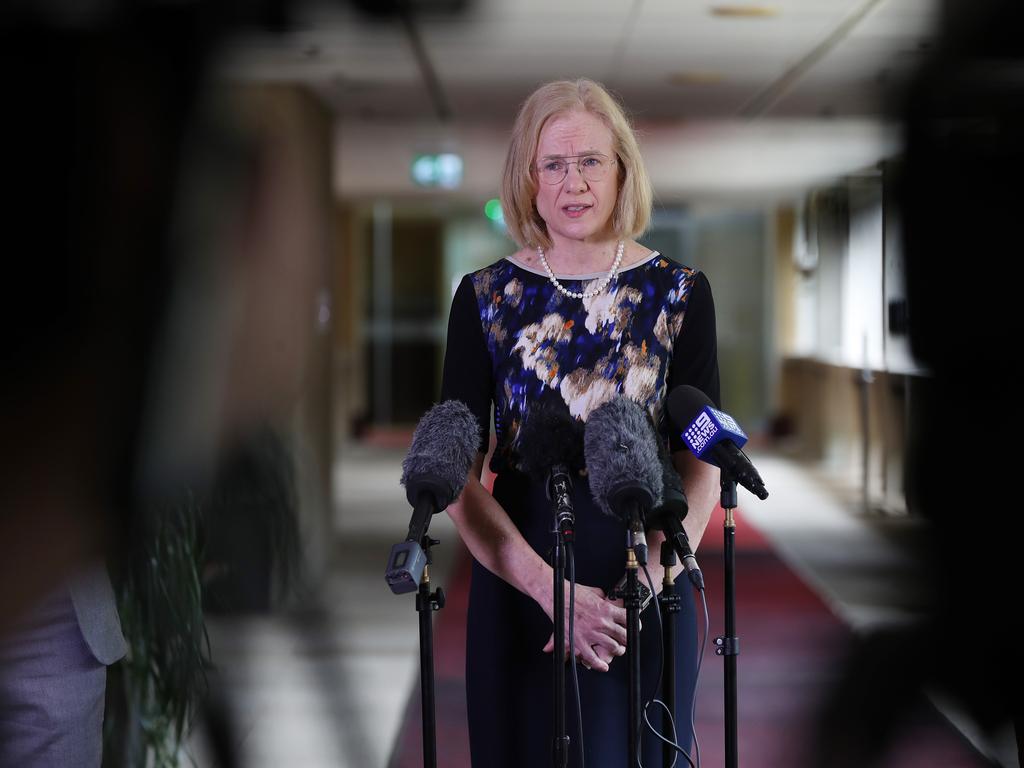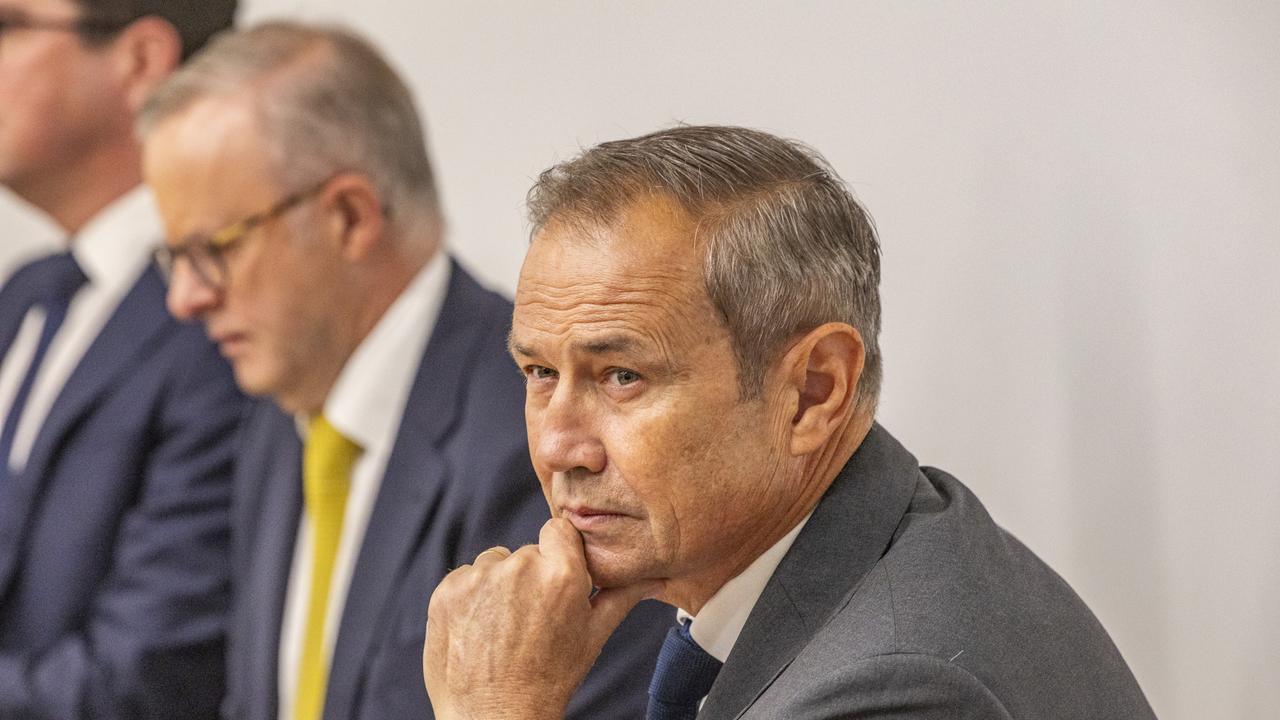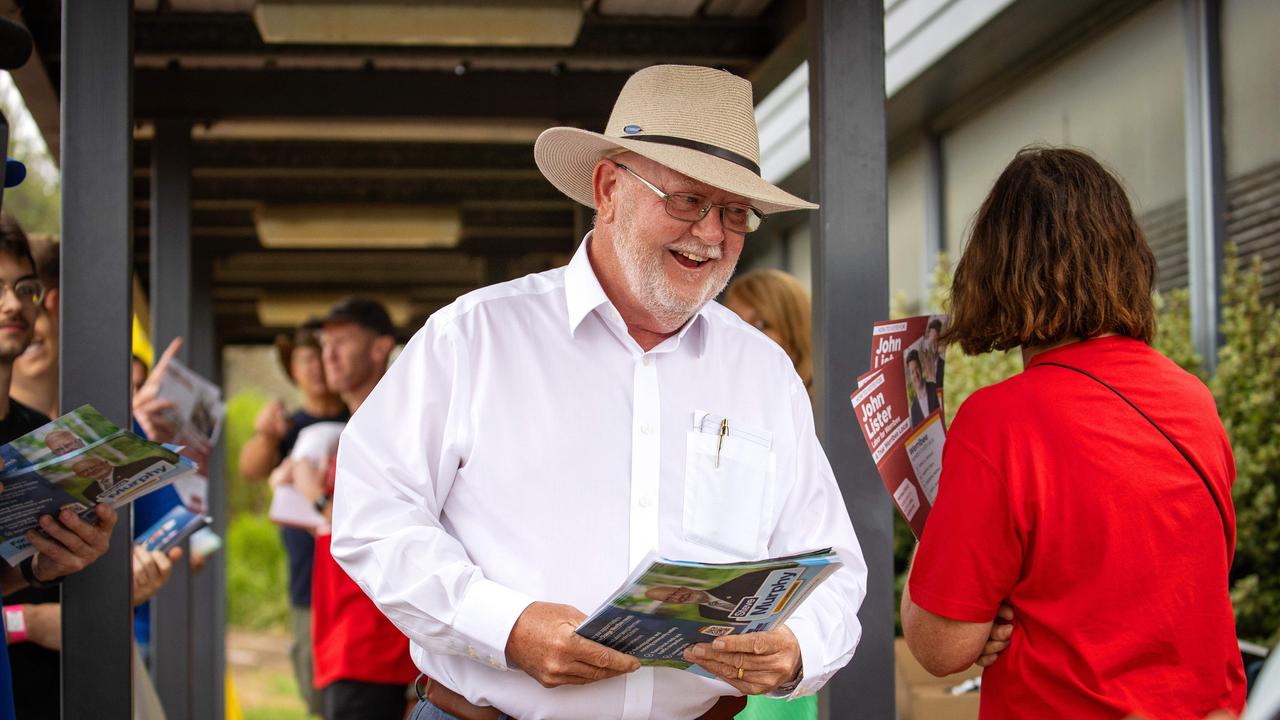Coronavirus live news Australia: Vaccines already slowing spread of virus: data
As a promise on Australian delivery is restated, a preview of research being published soon says vaccination is already easing the pandemic.

- 30,000 permitted at Australian Open
- Federal government insists vax program is still on track
- Victoria maintains virus-free streak
- New vaccine candidate enters the race
- EU slaps ban on vax exports to Australia
Welcome to The Weekend Australian’s rolling coverage of the coronavirus crisis.
The federal government insists Australia’s vaccine rollout is still on track despite an overnight ban on vaccine exports to Australia by the European Union. Meanwhile, a new vaccine candidate has emerged, as pharma giant Johnson & Johnson claims its vaccine is 66 per cent effective overall in preventing COVID-19, according to trial results.
Rhiannon Down 6.30pm: Local vaccinations still on track, says CMO
Health authorities say Australia is still on schedule for a late-February rollout of the Pfizer vaccine despite increasing international competitiveness in supplying doses.
Federal acting chief medical officer Michael Kidd said the government had conferred with pharmaceutical heads who disputed Australia’s supplies would be affected by EU export bans despite reports.
“[Health Minister] Greg Hunt has reconfirmed this morning that the current vaccine schedule is on track, as we confirm with country heads of Pfizer and AstraZeneca,” Professor Kidd said on Saturday.
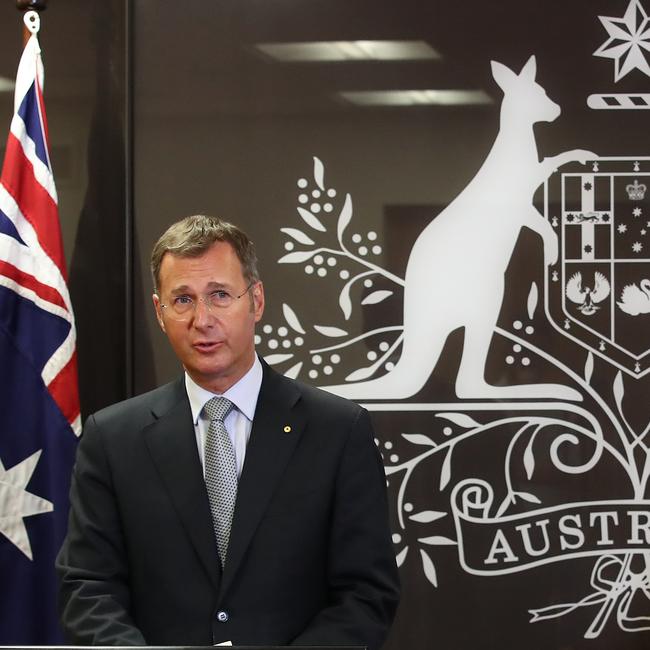
He welcomed the move by European authorities to approve the AstraZeneca vaccine but said Australia would “continue to prioritise safety above all else” and complete its own checks before rolling out vaccinations.
“Australia welcomes the announcement this morning from the European Medical Agency of the recommendation for the AstraZeneca vaccine for adults 18 years and over in the EU,” he said.
“The TGA [Therapeutic Goods Administration] will make its own independent decision based on the international evidence.”
He said Pfizer had confirmed Australia would receive 80,000 doses per week from late February, while AstraZeneca would deliver 1.2 million doses from offshore in March, pending TGA approval.
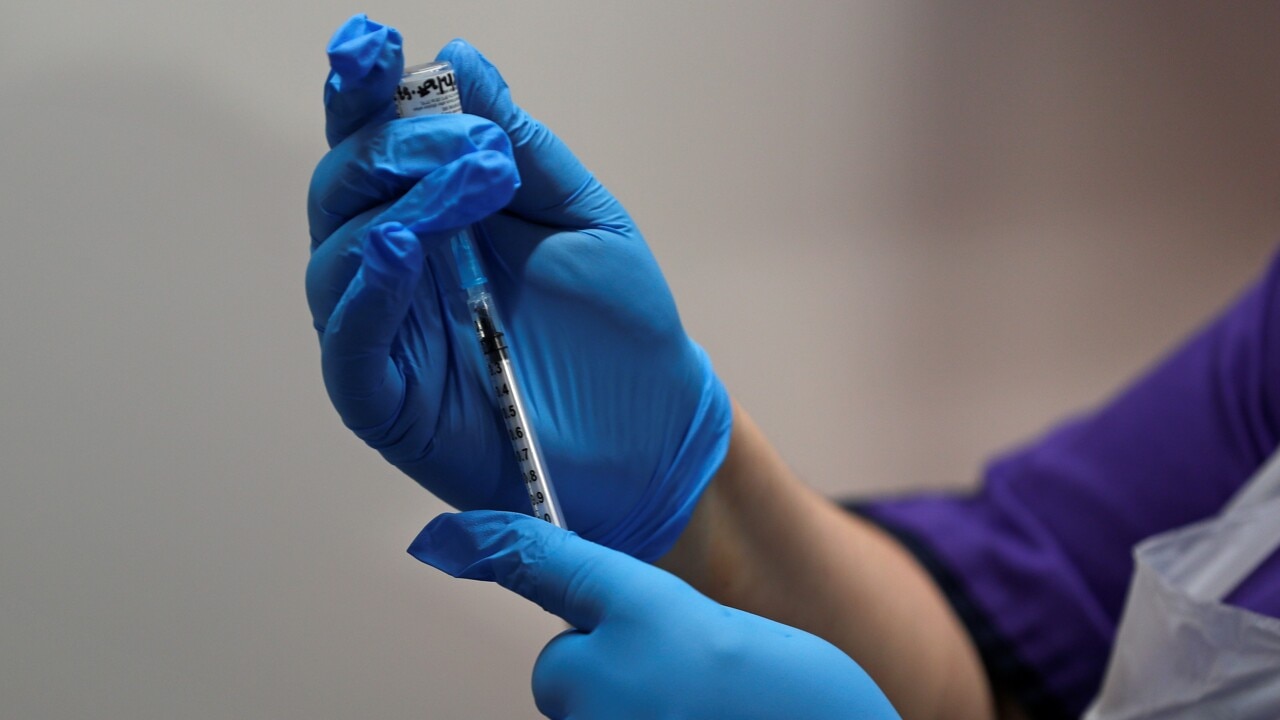
Meanwhile AFP reports the European Union on Friday backtracked on a threat to restrict exports of coronavirus shots to Northern Ireland in its growing row with Britain, as the WHO warned against “vaccine nationalism”.
Outbreaks are raging around the globe with COVID-19 deaths nearing 2.2 million, and while wealthy countries fight over limited vaccine supplies, there are fears the less privileged will not get access for a long time.
British-Swedish firm AstraZeneca has said it can only deliver a fraction of its vaccine doses promised to the EU and Britain because of production problems, but both sides are demanding their pledges are met.
The EU threatened to restrict vaccine exports to Northern Ireland by overriding part of the Brexit deal with Britain that allowed the free flow of goods over the Irish border, but backed down after British Prime Minister Boris Johnson voiced “grave concerns”.
READ EARLIER: Vaccine program still on track, says MP
Chris Smyth 5pm: Vaccines already slowing spread of virus: data
Vaccination is already easing Britain’s Covid epidemic with early data showing it is definitely reducing cases.
Research due to be published within days will provide real-world evidence that Britons are being protected, including suggestions that the effect is still building a month after one dose, said Anthony Harnden, deputy chairman of the Joint Committee on Vaccination and Immunisation (JCVI).
With fears about an EU export ban on vaccines, Professor Harnden said plans were in place for people to be able to mix and match vaccines if second doses of the Pfizer jab were unavailable.
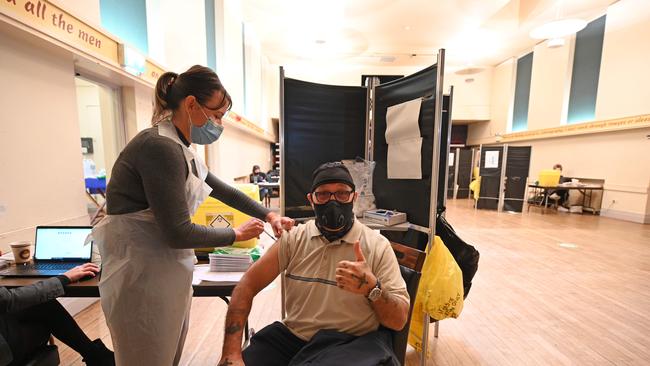
Decisions on vaccinating teachers and other key workers in the second phase are likely to involve political and economic input because clear evidence that the vaccines block transmission of the virus is unlikely to be available for months, he said.
Yesterday (Friday) official figures showed that another 414,419 people had been given a first dose, taking that total to 7.9 million, suggesting the NHS is more than halfway towards its target of immunising the four most vulnerable groups by the middle of next month.
Protection is thought to take at least two weeks to build but Professor Harnden said it was clear that mass vaccination was working to bring down cases.
READ MORE: Pandemic is accelerating us into the future
Rhiannon Down 4.45pm: WHO investigators make progress in China
WHO investigators looking into the origins of the coronavirus on the ground in China have visited the first hospital to treat a COVID patient.
The team, which includes Australian scientist Dominic Dwyer, met with staff at the Wuhan hospital on what was day two of their field work.
Team member Peter Daszak announced the team had arrived at the hospital on social media, shedding light on a trip otherwise shrouded in mystery.
“2nd day on-the-ground in Wuhan meeting w/ leaders & staff at the famous Wuhan Jinyintan Hospital that treated large numbers of severe Covid cases early in the outbreak,” he said in a Twitter post.
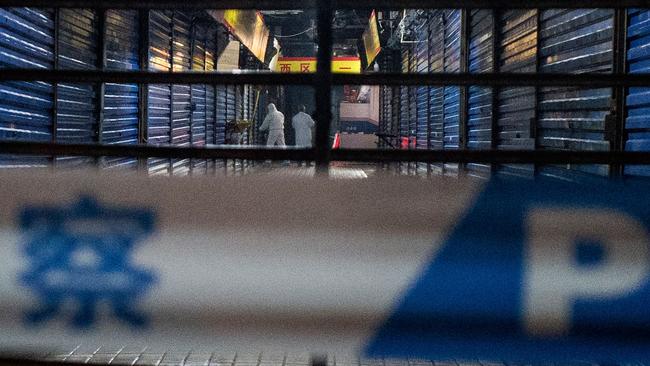
“Important opportunity to talk directly w/ medics who were on the ground at that critical time fighting COVID!”
The WHO team have been reported to have been kept at arm’s length by Chinese authorities and impacted by delays.
READ MORE: Farewell to China’s most sparkling gem
Rhiannon Down 4.10pm: Virus fragments found in Victorian regional towns
COVID-19 virus fragments have been detected in the sewage systems of some regional Victorian towns.
Pakenham, Leogatha and Cowes east of Melbourne, Castlemaine and Gisborne in central Victoria and Hamilton in the state’s west have been placed on alert after fragments were detected in the wastewater.
The discovery may indicate undetected COVID cases in the community or they could be the result of known positive results.
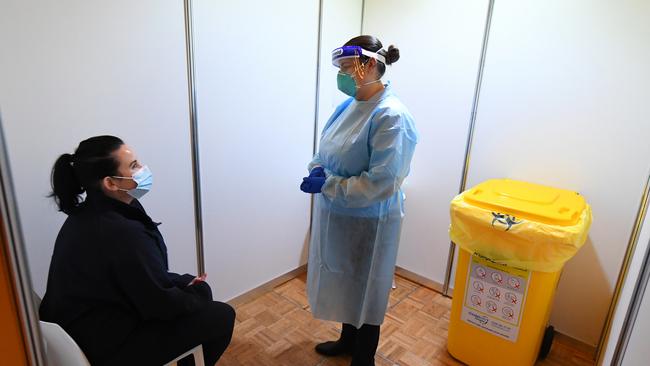
“If viral fragments are detected where there are or have recently been people diagnosed with coronavirus (COVID-19), it is likely that no additional public health measures will be needed,” Victoria’s DHHS said on its website.
Authorities urge anyone who visited the towns on the following dates to monitor for symptoms and get tested if they appear:
– Castlemaine: 25-27 Jan
-Cowes: 25-27 Jan
-Hamilton: 25-27 Jan
-Pakenham: 25-27 Jan
-Gisborne: 24-26 Jan
-Leongatha: 17-19 Jan
READ MORE: Mixed messages on masks a fatal mistake
Finn McHugh 3.40pm: NZ travel call delayed until last minute
A decision on whether to extend the New Zealand travel suspension has been delayed until just hours before it expires, with a number of COVID-19 test results still outstanding across the Tasman.
Quarantine-free travel from New Zealand was suspended for 72-hours from Monday after the country confirmed a case of the highly-contagious South African COVID-19 variant.
The suspension was extended for another 72-hours, until 2pm on Sunday, after further cases were detected.
Acting chief medical officer Michael Kidd said a decision on ending the New Zealand travel suspension will be made on Sunday.
“The authorities in New Zealand are continuing to do an excellent job, following up the contacts of the three people who are diagnosed with a South African variant of COVID-19,” he said on Saturday.
“There are still test results outstanding on a number of people who may have been at risk, so we will be meeting again tomorrow morning with our New Zealand colleagues.
“We will then provide advice to the Australian government.”
A 56-year-old woman tested positive to the strain after completing 14-days in hotel quarantine in Auckland, after testing negative twice while in isolation.
She travelled to around 30 venues while carrying the virus.
The strain, which is 50 per cent more transmissible than previous variants, has caused alarm among Australian authorities amid questions over the effectiveness of vaccines against it.
Health Minister Greg Hunt on Friday expressed optimism about the prospects of lifting the suspension, praising New Zealand for its “tremendous” job in curbing the outbreak.
The suspension “disappointed” NZ Prime Minister Jacinda Ardern, who warned this week travel bubbles were unviable if they could be abruptly halted.
Australia confirmed its 13th day of no community transmission on Saturday, marking the country’s longest streak without a case since March.
READ MORE: Trans-Tasman bubble in trouble
Rhiannon Down 3.11pm: Airlines welcome WA’s travel easing
Major airlines are welcoming new freedoms for travellers after WA loosened its border restrictions with Victoria and Queensland.
Virgin said it was still running limited services between Melbourne and Brisbane to Perth, but hoped to increase the number of flights with time.
The airline said searches for flights typically spiked shortly after border announcements, as prospective travellers leap on the chance to see loved ones for the first time in months.
“Many thousands of our people have been looking forward to returning to work, alongside travellers wanting to reconnect with loved ones, friends and families,” a spokesperson said.
WA will downgrade Queensland to “very low risk” on Monday and Victoria’s status on Friday, allowing travellers to enter the state without self isolating.
READ MORE: Here’s what $6500 per night gets you …
Rhiannon Down 2.45pm: Vaccination rates flag in Europe amid supply row
Vaccination rates have flagged across Europe as the squabble over vaccine access continues.
Delivery shortfalls for the Astrazeneca vaccine have led to delays in distribution in France and Spain, where in some regions authorities have been temporarily stopped from giving first doses.
Germany has reported shortages that will delay the rollout by 10 weeks, and Italy is running 10 days behind schedule.
Only two per cent of Europe’s population have received the first dose since the vaccine rollout began.
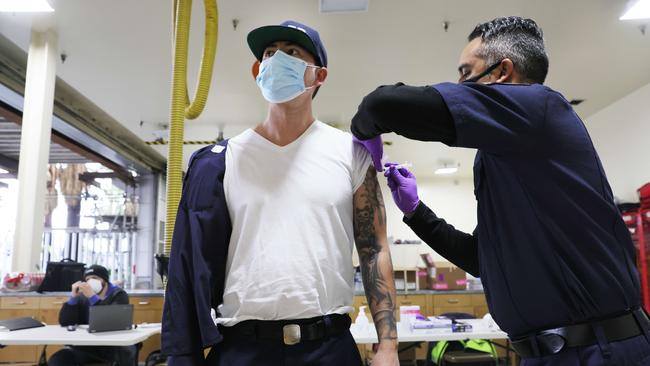
The EU announced an export ban on coronavirus vaccines to Australia so European citizens could be vaccinated first on Friday, throwing the rollout of Australia’s program into disarray.
It has also begun negotiations to secure doses of the Novavax vaccine after trials released on Friday indicated an efficacy rate of 89 per cent.
READ MORE: Tradies left in limbo in temporary town
Gemma Tognini 2.20pm: Comment: it’s time states got their houses in order
Just three short months ago in a speech to the Committee for Economic Development of Australia, Reserve Bank governor Philip Lowe spoke about the factors needed to facilitate Australia’s economic recovery from the first recession in 30 years.
One such factor was the need for Australian business owners to be able to take risks.
Lowe warned that being overly cautious, among other things, could undermine our economy and the speed of recovery.
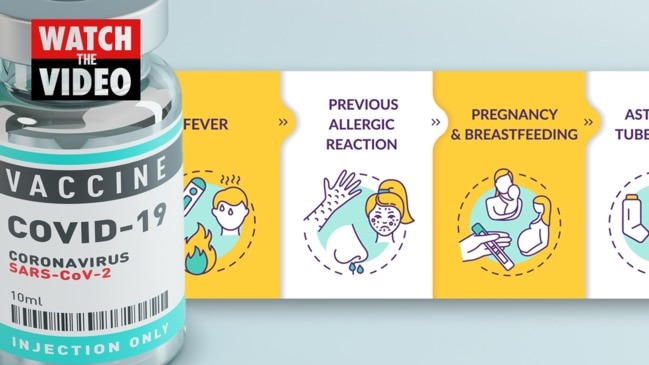
Wise words and true. Effective, strategic risk management is at the heart of every successful private enterprise, and the private sector is the engine that drives the Australian economy. From the smallest business to the largest, successfully managing risk happens moment by moment, day by day.
If there’s one thing this pandemic has stripped bare, it is just how inept the risk-management capability of the states really is.
Read Gemma Tognini’s full analysis here.
Rhiannon Down 1.55pm: UK’s second wave may have peaked
The UK’s crippling second coronavirus wave may have peaked, according to NHS data.
The number of Britons in hospital with COVID-19 has dipped below 30,000 for the first time since January 9, with 29,359 COVID-19 inpatients recorded on Friday.
Despite the slight respite, with admissions now down by half of their wave peak rate, authorities have warned the situation remains dire.
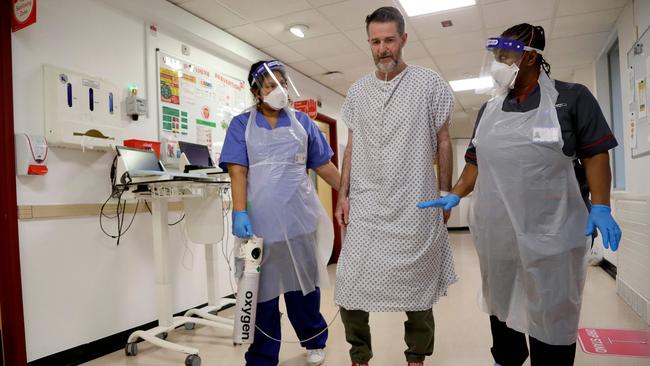
It’s speculated the drop could be the result of ONS tests, where it’s possible for the same person to test positive multiple times even if the infection is old.
The figures come as the UK counts almost one year since its first COVID-19 patient was admitted to hospital on January 31 last year, the first of more than 320,000 patients to follow.
READ MORE: Hospitality seeks HECS-style loans
Matthew Denholm 1.30pm: Give us a break, say tourism chiefs
Australians would be able to claim the cost of domestic holidays and business trips in their tax return, under a tourism industry rescue plan presented to the Morrison government.
The industry proposal comes amid pressure on the federal government to provide assistance to the beleaguered tourism sector after JobKeeper ends in March.
Backers of the tax deductibility proposal — including peak tourism groups across multiple states — say it’s a fair and effective way to stimulate domestic travel.
The proposal has been put forward by the Tourism Industry Council of Tasmania and supported by similar bodies in other states, including in Victoria, South Australia and Queensland.
“You can’t just leave a whole bunch of businesses to fall off a cliff in March and not expect a lot of trauma; there has to be some form of support,” TICT chief executive Luke Martin said.
“The advantage of the tax incentive model is that it puts money into the pockets of consumers and encourages them to get out and spend it in businesses across the economy. We’ve put the idea on the table within the industry and certainly it’s been flagged with the federal government. Everyone is interested.”
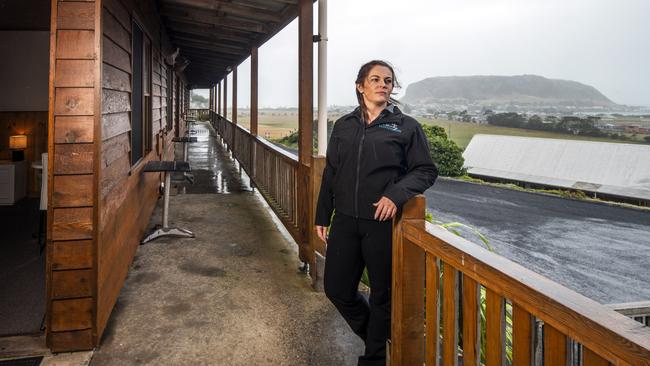
Scott Morrison has left the door open to further federal tourism industry assistance, without committing to a specific proposal.
The tax plan would give spending on interstate travel for business or pleasure a level of tax-deductibility, with a cap imposed.
Read the full story here.
Rhiannon Down 1.05pm: WA to further ease borders to eastern states
WA will further relax its borders to travellers from Queensland and Victoria, though NSW will retain its “low risk” status for many weeks.
WA Premier Mark McGowan said Queensland would be downgraded to the “very low risk” category from 12.01am on Monday and Victoria from 12.01am on Friday, after what was termed their skilled management of the COVID outbreaks.
Travellers from those states would be allowed to enter with a G2G pass and a declaration saying they were experiencing no symptoms and where they had been in the past 14 days, the WA Premier said on Saturday.
They may also be required to get a COVID-test at the airport if required.
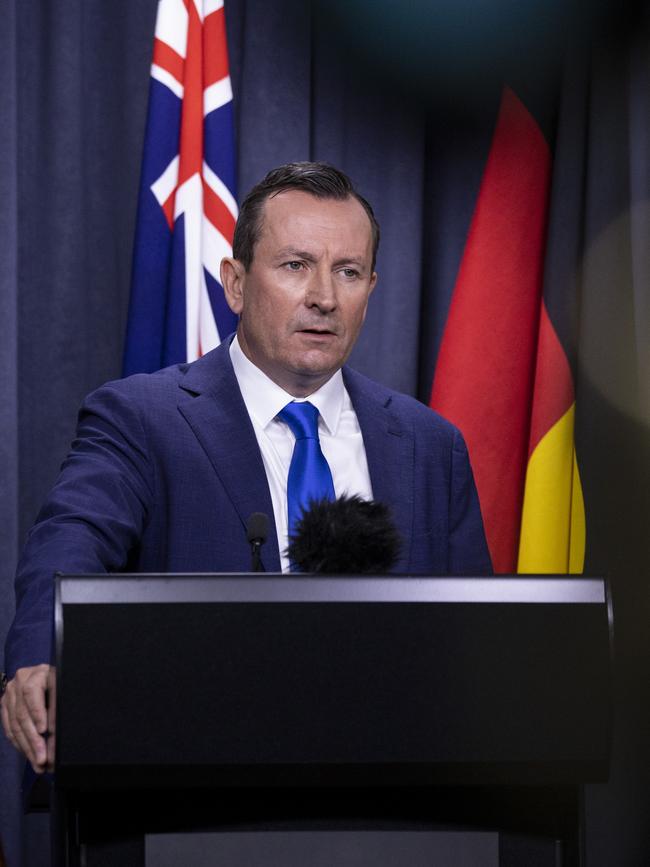
Mr McGowan said NSW would remain at its current status until more time had elapsed since it’s last case of community transmission.
“We want to see them reach 28 days before we can consider moving them to the next risk category,” he said.
“We cannot forget how quickly this virus can spread or the devastation it can cause.”
He defended WA’s approach to COVID-19, using tough border restrictions to contain the virus, saying the state was among the “safest and most successful jurisdictions in the world”.
READ MORE: Double dose of Phantom to make up for lost dollars
Rhiannon Down 12.30pm: Australia records another day of zero as borders come down
Australia has recorded another day of zero virus cases across the country, with an estimated 84 total active cases.
The figures, among the lowest Australia has seen in months, come as a number of states relax border restrictions.
From 6pm last night millions of Sydneysiders were cleared to travel to Melbourne after all LGA were downgraded to green zones, except for Cumberland Council in the city’s west, which remains an orange zone.
Travellers from the hotspot LGA will be required to get tested on arrival, though all arrivals will be required to apply for a permit before entering the state.
The ACT eased its border restrictions with NSW at 3pm on Friday and Queensland’s border will open fully from 10am on Monday.
SA will also relax its border restrictions from Sunday, allowing travellers from Sydney for the first time in the new year.
READ MORE: Biden vows to undo Trump’s damage
Rhiannon Down 11.45am: NSW records another day of zero
NSW has recorded zero locally acquired cases of coronavirus in the past 24 hours, out of 10,504 tests.
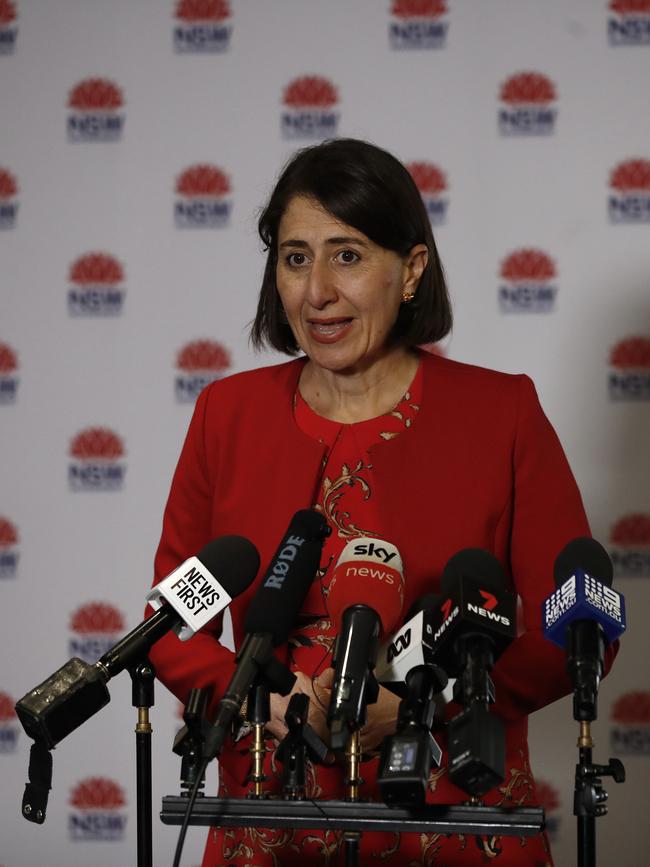
Health authorities said two new COVID cases had been detected in hotel quarantine and were being monitored.
“There were two cases acquired overseas, bringing the total number of COVID-19 cases in NSW since the beginning of the pandemic to 4912,” NSW Health said on social media.
Low test numbers remain a concern for authorities, who said “high rates of testing are an important tool in tracking the spread of the virus”.
Virus traces were detected through the state’s sewage surveillance program in the sewage network at Minto, Liverpool and Warriewood.
Though the cases could be from known cases authorities urged anyone experiencing any symptoms to get tested.
READ MORE: Borders open as Premier hits out
Rhiannon Down 11.15am: 30,000 spectators allowed at Australian Open
Spectator numbers at the Australian Open will be limited to 30,000 for the first eight days of the tournament and 25,000 in the final six days.
Victorian Sports Minister Martin Pakula announced the restricted crowd numbers on Saturday morning one week out from the grand slam’s start date, saying the milestone was a “testament” to the work of Victorians to suppress case numbers.
“That’ll mean as we get to the end of the tournament we’ll have an incredible atmosphere not that different to the atmosphere we’ve seen in all the Opens in the years past,” he said from Melbourne Park.
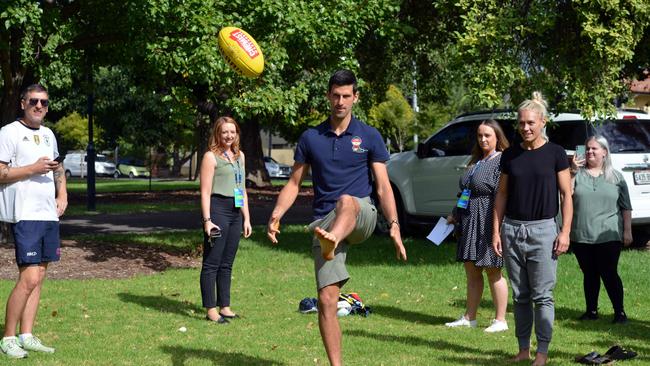
“It won’t be the same as the last few years but it will be the most significant international event with crowds that the world has seen for many months.”
The announcement comes as Victoria recorded zero locally acquired cases for the 24th day in a row, with one new case detected in hotel quarantine.
Mr Pakula said the case was not linked to the Australian open, as the state’s active case numbers hovered at 23.
READ MORE: Dangerously super-fit Serena Williams unmasked
All residents and travellers wishing to enter Victoria must now apply for a permit. Red, orange, and green zones are subject to change based on current health advice. Please visit the website before travelling to Victoria and make sure you know your zone.
— VicGovDHHS (@VicGovDHHS) January 28, 2021
Rhiannon Down 10.20am: Aus vaccine program still on track: Chester
The federal government says Australia is still “on track” to roll out coronavirus vaccinations next month, after the EU began withholding doses in a row over distribution.
Gippsland Coalition MP Darren Chester said these issues with supply were to be expected and the government was doing everything in its power to ensure stocks.
“Foreign Minister Marise Payne who will be making representations to the World Health Organisation to make sure we are on track,” he said on ABC Weekend Breakfast.
“We have brought forward the approval process. It has been fully approved of the vaccine which we expect to roll out towards the end of February and obviously start with the more vulnerable Australians first and it will occur only a matter of a few weeks from now.
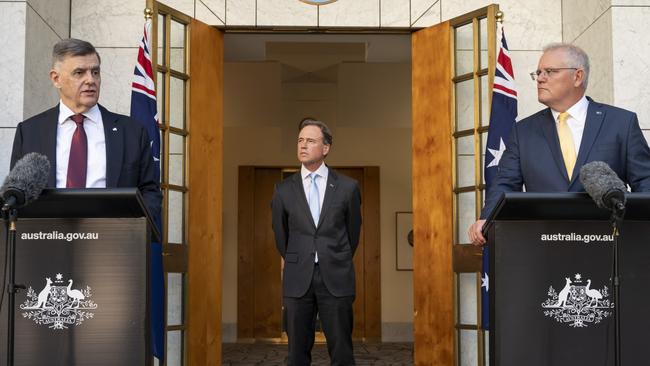
“These supply shocks were not unexpected given the nature of the virus, but I’ve had reassurances from colleagues and I understand Greg Hunt as minister is making all the responsible moves you need to make to ensure supply is able to us.”
In a dramatic move that could escalate into a broader trade war, the EU began hoarding vaccines for 450 million yesterday over claims the UK had “hijacked’’ doses of the AstraZeneca vaccine made in a Brussels plant.
Australia failed to obtain an exemption despite the diplomatic efforts of Foreign Minister Marise Payne and Health Minister Greg Hunt.
READ MORE: Trade war brews over vaccine
Gerard Cockburn 10am: Victoria maintains virus-free streak
Victoria has recorded zero new locally acquired cases of coronavirus in Saturday’s numbers.
The promising figure, marking 24 days of no community transmission, comes as 13,072 Victorians got tested in the 24 hours to midnight.
One new case was reported in the state’s hotel quarantine system.
On Friday evening border restrictions with New South Wales were eased.
The Cumberland local government area in Sydney has now moved from red to orange under the Victorian government permit system, with all other Greater Sydney zones transitioning to green.
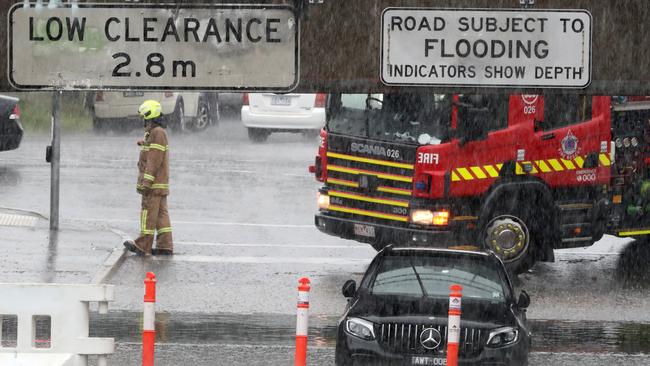
Residents in the Cumberland area need to get a COVID-19 test in the first three days of being in Victoria.
All other Sydney residents can travel to Victoria without a test but still need to apply for a permit.
READ MORE: Pleas for help as Victoria hit by floods
Rhiannon Down 9.40am: New vaccine candidate ‘66 per cent effective’
Pharma giant Johnson & Johnson’s coronavirus vaccine is 66 per cent effective overall in preventing COVID-19, according to trial results released today.
The vaccine candidate, developed by Johnson & Johnson by its Janssen Pharmaceutical Companies, was found to be 72 per cent effective in trials in the US, 66 per cent in Latin America and 57 per cent in South Africa in test subjects 28 days after vaccination.
It was also found to be 85 per cent effective in preventing severe disease across all regions.
The data was based on results from 43,783 participants recording 468 symptomatic cases of COVID-19, with trial participants showing immune responses within 14 days.
“Our goal all along has been to create a simple, effective solution for the largest number of people possible, and to have maximum impact to help end the pandemic,” Johnson & Johnson head Alex Gorsky said in a statement.
The Australian has been told Johnson & Johnsons vaccine may be available to Australian consumers on the private market should a key deal go ahead, pending TGA approval.
READ MORE: EU scrambles to block vaccine exports
Jacqueline Magnay 9am: EU slaps ban on vaccine exports to Australia
The European Commission has slapped an immediate export ban on coronavirus vaccines to Australia so European citizens can be vaccinated first, throwing the rollout of Australia’s program into disarray.
In a dramatic move that could escalate into a broader trade war, the EU has begun hoarding the vaccines for 450 million Europeans after claiming the UK had “hijacked’’ doses of the AstraZeneca vaccine made in a Brussels plant.
The new rules, released overnight, will stop or slow the rate of export of any vaccines made or bottled in Europe to anywhere outside the continent, including Australia.
This will immediately affect Australia’s 80,000 doses of the Pfizer BioNtech vaccine made in Puurs, Belgium, which is due in the coming weeks to start Australia’s vaccination program.
Australia’s 3.8 million international AstraZeneca Oxford vaccine doses, made in Seneffe, Belgium, had already been cut to 1.2 million and Europe’s moves have added fresh uncertainty about this reduced amount.
Australia failed to obtain an exemption from the European rules despite the diplomatic efforts of Foreign Minister Marise Payne and Health Minister Greg Hunt.
Read the full story here.

